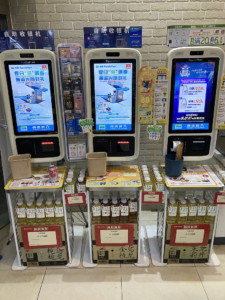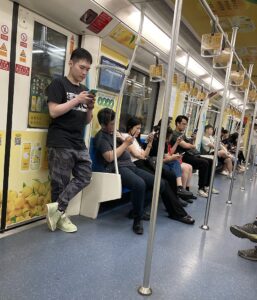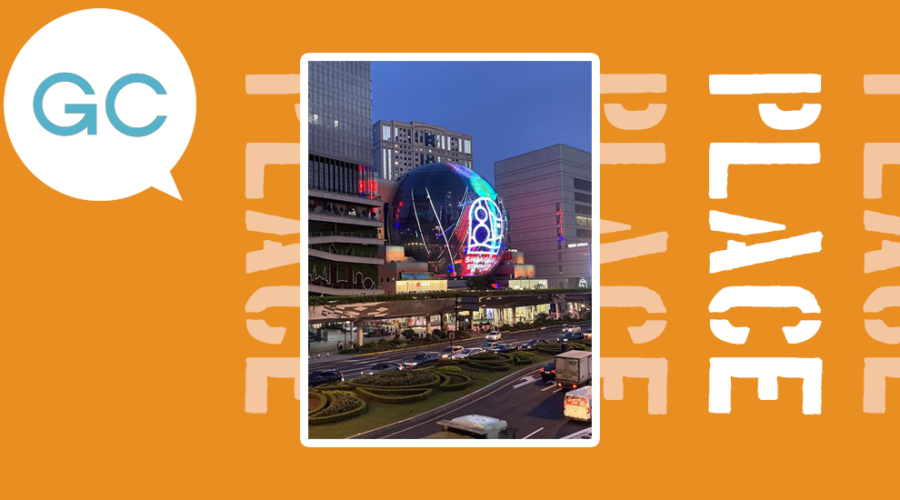Nominally, China is a communist nation. In reality, this fascinating country with an ancient culture is possibly the most materialistic society in the world.
Walking the streets of Shanghai, as in other Chinese cities and towns, one thing I noticed was that very few people were wearing flip flops. Knowing historical animosity between China and Japan, I initially thought this might be because this type of footwear was originally designed in the Land of the Rising Sun. But then I looked around and saw people driving Honda, Mazda, Mitsubishi, Nissan, Subaru and Toyota. How come they are fine driving Japanese-made cars, but they don’t like wearing a subgroup of sandals whose origins trace back to Japan?

It didn’t take long to find out that, in fact, many Chinese see flip flops as “too cheap.” Achieving material wealth, and outperforming others in both personal and professional realms, are often seen as the ultimate markers of success in a modern-day China.
When I was a kid, in the early 1990s, and I watched news reports from China, I noticed that everyone on the streets was riding bicycles and wearing similar types of clothes. More than three decades later, Chinese people drive expensive vehicles (many of them electric) with an average car age of just 5.1 years. Bicycles are still popular, though. It is hard to ignore thousands of colorful bikes that line locked the streets. One can simply unlock a bicycle by scanning a QR code using a mobile app, ride it and park it at a different stand and pay using the same app.
In China, living without smart phones, QR codes and mobile apps, is almost inconceivable. Technically, it is possible to use cash, but it is very likely that a seller will not be able to give you change, as they don’t have paper money in the register. In fact, they don’t seem to have a register at all. Paying with a credit card can also be difficult, as many stores do not have payment terminals.
Most Chinese people use mobile payment platforms for all their transactions. QR code payments have become so widespread in China that traditional wallets, physical cash, and even credit cards are now almost obsolete. Going to supermarkets and shopping malls does not seem to be so popular either. The airline that flew me to China lost my luggage so I had to buy new clothes. I visited several shopping malls, but most stores were almost empty, and the clothes were very expensive.
I was advised to order clothes online, as it is much cheaper. But how could I do that? All the shopping apps are in Chinese, and even the front desk agents at my hotel do not speak English. Since all Western social media are banned in China, I had to install a VPN to use Google Translate. It worked very slowly, but at least it helped me explain to the receptionist what kind of clothes I needed. Less than an hour later, a robot delivered a package to my hotel room.
In China, things seem to be exceptionally well-organized and efficient. It is a high-tech and highly digitalized society. In many sectors, machines have already replaced humans. At the train stations, Western tourists seem to be the only ones buying tickets from people, while locals use machines instead. But without providing an ID or passport, it is impossible to purchase a ticket.

I had the opportunity to travel on a high-speed train – one ofthe fastest in the world – to several places in southern China. While the streets in large cities are full of people rushing somewhere, in towns and villages life seems to be more easygoing. But no matter where you go, the humidity is very high. I was constantly sweating, unlike locals who do not sweat nearly as much as Europeans do. That is why they often looked at me strangely in my wet t-shirt.
They looked strange to me, too, in some ways. Even though it was around 40 degrees Celsius (104 degrees Fahrenheit), many people – especially women – were wearing long sleeves. It is not because they are particularly conservative, but because they do not want to get tan at all. Chinese women do not seem to like exposing their skin to UV rays. That is why they carry umbrellas, wear masks and hats, and do everything they can to have their skin as white as possible. Many men seem to have adopted the same pattern. It is not uncommon to see Chinese men using skin-whitening products, or even makeup, just to look white.
Travelling the country, it was very difficult to find a restaurant that has forks and knives available. I could not believe that the Chinese eat even noodle soup with chopsticks. Although I practiced at home before leaving for China, I could never get used to eating with chopsticks. Also, Chinese food in Europe is very different from the food actually eaten in China. Chinese food in the West seems to be adapted to suit the local environment and cater to Western tastes.
I wish I could say I enjoyed the local cuisine in China. Food was probably the thing I liked least during my trip to the People’s Republic. What I really enjoyed was the hospitality of the Chinese people who, despite the materialism, are very friendly and helpful.
Images: Nikola Mikovic

